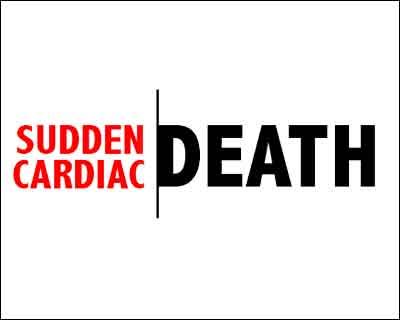- Home
- Editorial
- News
- Practice Guidelines
- Anesthesiology Guidelines
- Cancer Guidelines
- Cardiac Sciences Guidelines
- Critical Care Guidelines
- Dentistry Guidelines
- Dermatology Guidelines
- Diabetes and Endo Guidelines
- Diagnostics Guidelines
- ENT Guidelines
- Featured Practice Guidelines
- Gastroenterology Guidelines
- Geriatrics Guidelines
- Medicine Guidelines
- Nephrology Guidelines
- Neurosciences Guidelines
- Obs and Gynae Guidelines
- Ophthalmology Guidelines
- Orthopaedics Guidelines
- Paediatrics Guidelines
- Psychiatry Guidelines
- Pulmonology Guidelines
- Radiology Guidelines
- Surgery Guidelines
- Urology Guidelines
Mitral Valve Prolapse may lead to sudden cardiac death

Mitral Valve Prolapse may lead to sudden cardiac death is finding of a new study by University of an Adelaide-led team of researchers. They analysed more than 7600 studies and found that 12% of victims of sudden cardiac death without a clear cause had mitral valve prolapse. The findings of the paper have been published in Heart.
Mitral valve prolapse that affects around 12 in every 1000 people worldwide.
In a paper, published in Heart, researchers analysed more than 7600 studies and found that 12% of victims of sudden cardiac death without a clear cause had mitral valve prolapse.
"Mitral valve prolapse is condition in which the leaflets of the valve (mitral valve) that lets blood flow from one chamber to another does not close smoothly or evenly, instead they bulge (prolapse) upward into the left atrium of the heart," says lead researcher Dr Rajiv Mahajan, Cardiologist at the University of Adelaide's Centre for Heart Rhythm Disorders.
"Over the years, there have been several case studies associating mitral valve prolapse with unexplained sudden cardiac death, however the link had not been confirmed," Dr Mahajan says.
"Our analysis confirms the association, and indicates that the incidence of sudden cardiac death in patients with mitral valve prolapse is significant at 14 in 1000 per year," he says.
The paper also identifies a number of features that put people with mitral valve prolapse into the high-risk category for serious cardiac arrhythmias (abnormal heart rhythm) and sudden cardiac death.
"Mitral valve prolapse is a common heart condition, and in many cases it doesn't cause symptoms or require treatment," Dr Mahajan says.
"The research has however enabled us to identify a number of consistent features found in cases of sudden cardiac death where the patient had mitral valve prolapse.
"Presence of scarring of the heart muscle, cases of severe bulging of both leaflets of the mitral valve, and heavy mitral valve leakage have all been reported in patients with mitral valve prolapse who have been resuscitated from cardiac arrest, which suggest patients with these features are at high risk," he says.
In response to these findings, the researchers, which include researchers and cardiologists from the University of Adelaide, University of Melbourne, University of New South Wales and University of Queensland, are in the process of creating a prospective registry in Australia for patients with mitral valve prolapse, resuscitated cardiac arrest and reported sudden cardiac death.
"With one in five sudden cardiac deaths (SDC) occurring in people with otherwise normal hearts, this research provides insight into the need for further investigation of patients with mitral valve prolapse and high-risk conditions for serious and life-threatening cardiac arrhythmias," says Professor Prash Sanders, Director, Centre for Heart Rhythm Disorders at the University of Adelaide.

Disclaimer: This site is primarily intended for healthcare professionals. Any content/information on this website does not replace the advice of medical and/or health professionals and should not be construed as medical/diagnostic advice/endorsement or prescription. Use of this site is subject to our terms of use, privacy policy, advertisement policy. © 2020 Minerva Medical Treatment Pvt Ltd